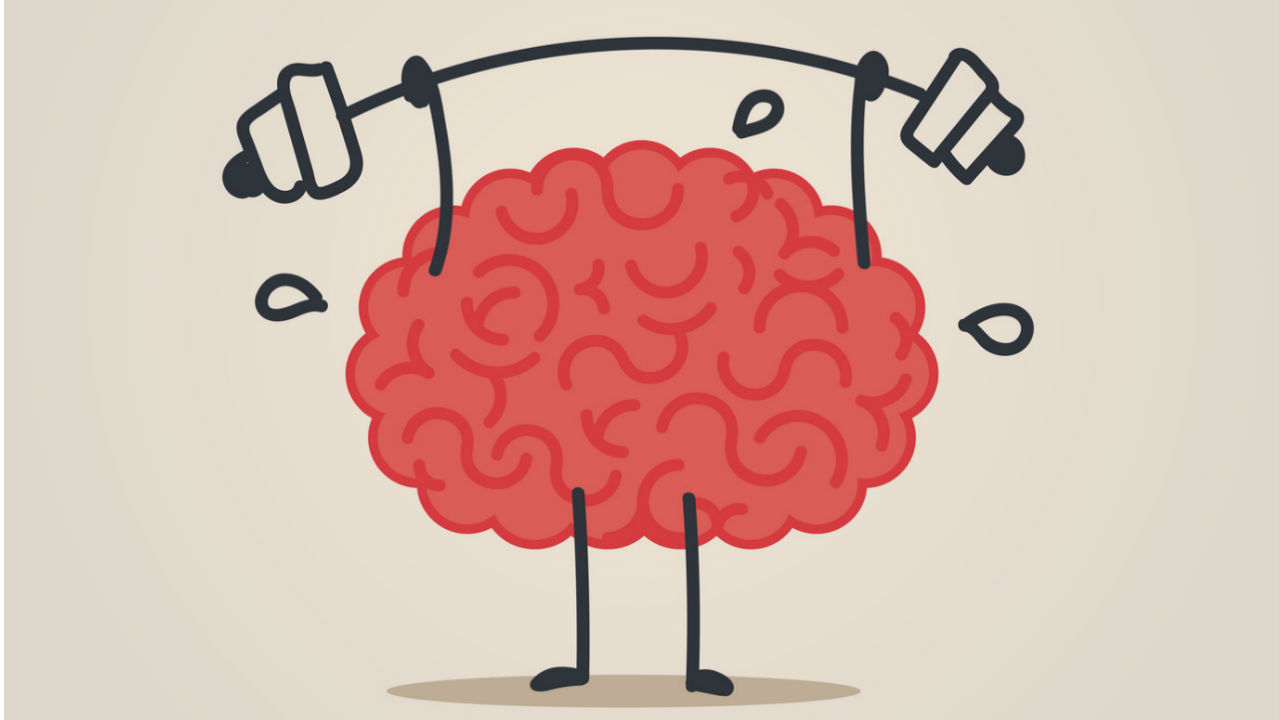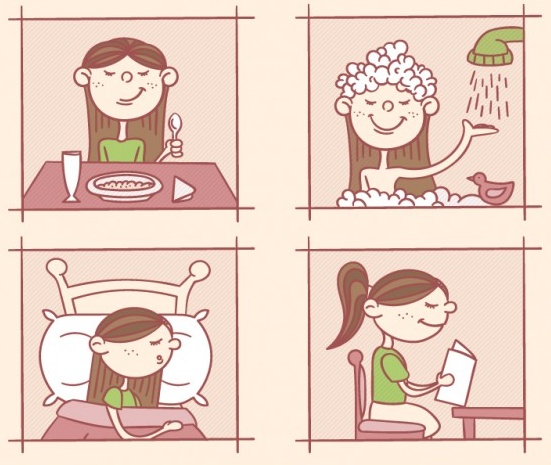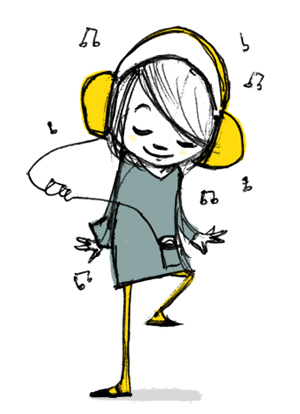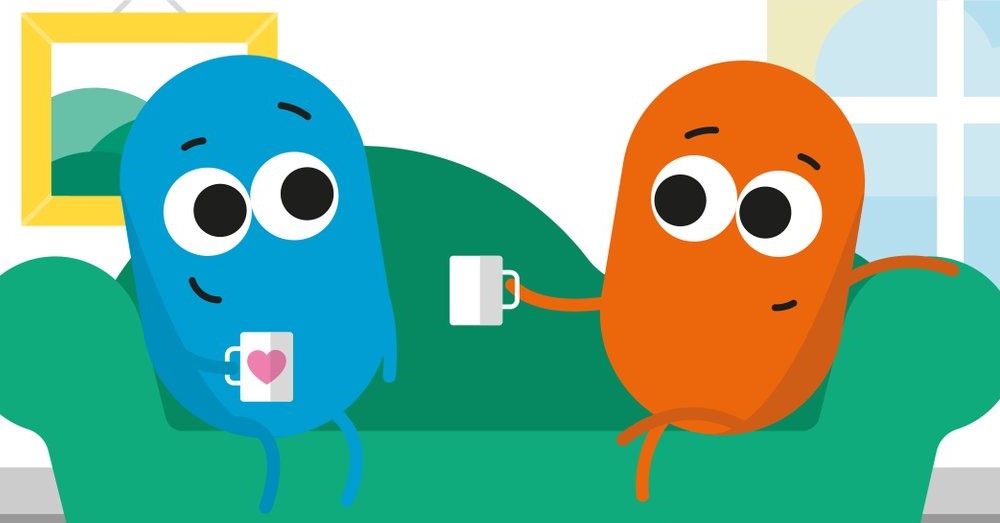Everyone has moments when they feel sad, lonely, numb, exhausted, depressed, nervous or anxious. This is a normal part of the ups and downs of life. But even though it is normal, that does not make it fun! Especially if you experience such moments regularly. Most people will experience one or more periods in their lives, when they have a diagnosable depression or anxiety disorder. In a nutshell, this means that they are experiencing negative emotions for a longer period of time (at least two weeks for depression and 6 months for anxiety) and this is impacting their life negatively (e.g., their grades are dropping, they are skipping school, they are avoiding social contact, etc.). Definitely not a situation you want to stay in for long. But even if things are not quite that bad, you may still want to do something to help yourself feel better!
Before we discuss things that you can do to help yourself deal with feelings of anxiety and depression, it is important to know that you do not have to deal with feeling anxious or depressed on your own. You can receive help from many sources, from both informal sources such as family, friends, trusted teachers, online communities and from professional sources such as your GP, a psychologist or a psychiatrist. If you find it difficult to ask for help, maybe our previous post will help you!
But what if you do not want to ask others for help? Or you have/ are going to, but you still want to try to do somethings yourself as well?
Let your body do the work

Exercise is not only good for your body, but it can also help your mind. And you do not need to spend hours at the gym or even be good at sports! When you are feeling anxious, your muscles are often quite tense. By exercising you can release that tension. At the same time you can allow yourself to focus on your body, instead of your thoughts or emotions.
But your body can also relax in different ways. Instructions for relaxation exercises can be found everywhere online. We even have our own post about how you can relax by breathing!
The normal things…

It seems so normal to get out of bed every morning, to get dressed, have a good breakfast. But sometimes even these normal things may become a challenge. So maybe you shouldn't do them? When you have the flu it is better to stay in bed and rest. Eating may not be the best idea if you are nauseous… But even though mental health is just as serious as physical health, when you are feeling down or anxious staying in bed and not eating is not going to help you feel better. Try to keep a normal rhythm, sleep enough but not too much, make sure you get dressed and go out of your house every day. These are little steps, but they are really important for your well-being!
Let's have some fun!

Although you might be able to snap out of a bad mood or get over your fear of that tiny spider on the other side of the room, this does not work if you are facing clinical anxiety or depression. So do not expect yourself to be feeling your old self again in a day. That does not mean that you cannot try to find some things that are still a little fun to do or at least something that you used to like. If you are into video games, maybe you can check out some of the games we have had good experiences with. Or maybe you can play some music or organize your own private dance party (just try it for 1 minute) or go see a movie with a friend?
Treat yourself like your best friend

Some of the things we say to ourselves we would not say to another in a million years! So try to treat yourself like you would treat a friend, your very best friend even. Be proud and celebrate the things you accomplish, even if they are 'normal' to you (You past that test! You go girl!!). If you are really struggling with being nice to yourself, then maybe a first step is to let someone else show you how to. How about talking to a friend?
Sharing is caring

Sometimes simply talking to someone you like and trust, can be enough! They do not have to do anything but listen or share some of their own experience. You may think it is talking about these negative feelings is just going to make you feel worse, but this is rarely the case. When you talk to someone who really cares about you, this can actually make you feel better! Even if they do not completely understand or say something that you don't agree with, it can feel good to know someone cares and they may even have a different perspective that you didn't think about before.
Learning to talk about your emotions is very important, even if you are not anxious or depressed. In the last 7 years or so I have slowly built on connecting more with people, talking more openly and allowing new people in my life to become people I trust with the deep, dark and ugly as well as with the fun and laughter. It has given me more people that can give me a hug and a smile when I feel down, and sometimes that is all you need to keep going and trying.

I think that the number one thing you can do to help yourself if you are facing depression and anxiety is to keep trying until you find something (or multiple things) that feel right for you. Because there are so many options, I have included some resources below. But these are definitely not complete. So what do you do to help yourself when you are feeling down or anxious?
Resources
Mental Health Month: The #4Mind4Body Challenge – Use each day in May to make small changes to improve your wellbeing! http://www.mentalhealthamerica.net/4mind4body-challenge
More ideas on how to deal with anxiety? Check out: https://www.latrobe.edu.au/__data/assets/pdf_file/0010/699508/Self-help-strategies-for-mild-anxiety.pdf
More ideas on how to deal with depression? Check out: https://www.mind.org.uk/information-support/types-of-mental-health-problems/depression/self-care-for-depression/#.WunaWYhuZPY
Do you want to know how you can help someone you think is suffering from depression? Check out the first aid for depression guidelines: https://mhfa.com.au/sites/default/files/mhfa_depression_guidelines.pdf
Or check out: https://mhfa.com.au/mental-health-first-aid-guidelines for more mental health first aid.





